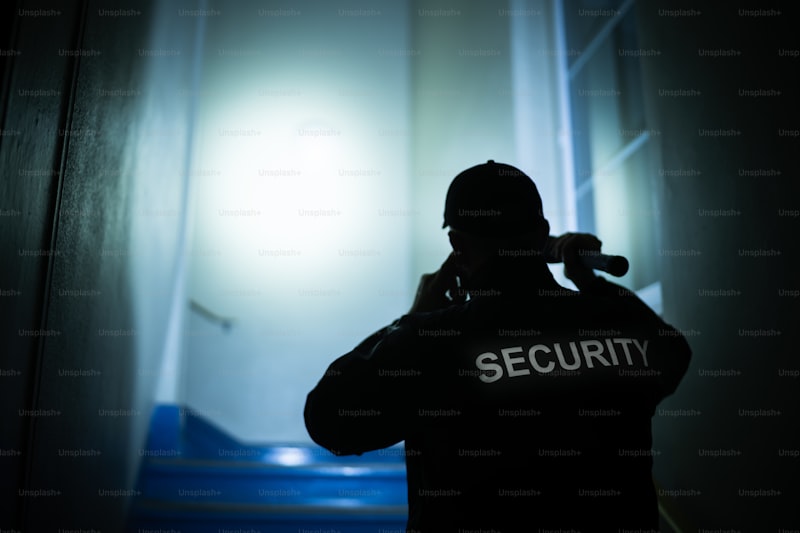Ever found yourself drawn into the mysterious world of espionage thrillers? These gripping tales of intrigue and deception have captivated readers and viewers for decades, weaving intricate webs of suspense and danger that keep us on the edge of our seats. But what is it about espionage thrillers that makes them so irresistible?
Imagine diving into a world where nothing is as it seems, where spies operate in the shadows, and every corner turned could lead to betrayal or discovery. Espionage thrillers are like a labyrinth of secrets, where each new piece of information reveals a deeper layer of the plot, keeping you guessing until the very end.
One of the key elements that make espionage thrillers so compelling is their ability to blend reality with fiction seamlessly. Many of these stories are inspired by real-life events and espionage tactics, adding a sense of authenticity that hooks readers and viewers alike. It’s this mix of truth and imagination that creates a thrilling experience, making you question what is possible in the murky world of international espionage.
Think about iconic characters like James Bond or Jason Bourne, who navigate through perilous missions with wit and skill. They embody the essence of the espionage thriller genre – fearless, resourceful, and always one step ahead of their adversaries. These characters not only face external threats but also battle their inner demons, adding depth and complexity to the narrative.
Espionage thrillers also excel in creating atmospheric tension. Whether it’s a tense exchange in a dimly lit alleyway or a high-stakes chase across a bustling city, these stories evoke a sense of urgency and danger that keeps the adrenaline pumping. The stakes are high, and the consequences of failure are dire, making every twist and turn in the plot all the more thrilling.
Moreover, espionage thrillers often explore timeless themes such as loyalty, betrayal, and the ethics of espionage itself. They challenge us to consider the moral dilemmas faced by spies and the murky nature of their missions. These themes resonate with audiences because they reflect universal truths about human nature and the complexities of power and secrecy.
Espionage thrillers transport us to a shadowy world where danger lurks around every corner and trust is a rare commodity. They entertain us with their fast-paced action and intricate plots while also provoking deeper reflection on the nature of espionage and its impact on individuals and societies. So, next time you’re looking for a riveting read or a thrilling movie night, consider diving into the dark and intriguing world of espionage thrillers.
Inside the Secret Lives: How Espionage Thrillers Mirror Real-World Intrigue
Imagine a world where every shadow hides a secret agent, and every conversation could be a coded message. Espionage thrillers plunge us into this realm, where deception and danger lurk around every corner. Authors adeptly blend fact with fiction, drawing inspiration from historical events and covert operations that have shaped history. Through these stories, readers embark on thrilling journeys that explore the moral ambiguities and high-stakes gambits of espionage.
What makes espionage thrillers so compelling is their ability to blur the lines between truth and fiction. They challenge readers to question motives and unravel mysteries alongside complex characters who navigate treacherous landscapes of power and deceit. These stories often delve into the psychological depths of spies and operatives, exploring the sacrifices they make and the alliances they forge in pursuit of their missions.
In these narratives, every twist and turn serves as a breadcrumb leading to a greater revelation, keeping readers on the edge of their seats. From high-speed chases through exotic locales to tense exchanges in dimly lit alleys, espionage thrillers evoke a sense of urgency and intrigue that captivates audiences worldwide. They invite readers to ponder the ethical dilemmas faced by those who live double lives and the consequences of their actions on a global scale.

Ultimately, espionage thrillers offer more than just entertainment; they provide a glimpse into the hidden world of intelligence gathering and covert operations. As readers immerse themselves in these tales of espionage, they are reminded that truth can be stranger than fiction and that the line between hero and villain is often blurred in the pursuit of national security and personal vendettas.
Unveiling the Shadows: The Evolution of Espionage Thrillers in Literature
Espionage thrillers have long held readers captive with their tantalizing blend of intrigue, suspense, and international espionage. From the Cold War era classics to modern-day techno-thrillers, the genre has evolved significantly, reflecting changes in global politics, technology, and societal perceptions of espionage.

In the early 20th century, writers like John Buchan and Erskine Childers set the stage with their tales of daring spies and political intrigue. These novels often portrayed espionage as a noble pursuit, where heroes thwarted enemy plans against their nations. The genre gained further popularity during the World War II era, with authors such as Graham Greene delving into the moral complexities of espionage and its impact on individuals caught in the web of international espionage.
The Cold War period marked a golden age for espionage thrillers, with iconic figures like Ian Fleming’s James Bond becoming cultural icons. Bond’s escapades blended action, romance, and high-stakes espionage, embodying the suave yet deadly spy archetype that continues to influence the genre today.

In more recent decades, espionage thrillers have adapted to reflect contemporary geopolitical tensions and advancements in technology. Authors like John le Carré introduced a grittier, more realistic portrayal of espionage, emphasizing moral ambiguity and the psychological toll on agents. The genre expanded to include cyber espionage and techno-thrillers, where hackers and digital spies navigate a world of encrypted secrets and virtual battlegrounds.
Today, espionage thrillers continue to captivate readers with their intricate plots, charismatic protagonists, and pulse-pounding action sequences. Writers explore themes of betrayal, loyalty, and the blurred lines between heroism and villainy in a globalized world where information is power.
As the genre evolves, authors push boundaries, weaving together historical events, cutting-edge technology, and compelling characters to create narratives that resonate with contemporary audiences hungry for suspense and intrigue. Whether set against the backdrop of Cold War espionage or in the digital age of cyber warfare, espionage thrillers remain a powerful literary force, offering readers a glimpse into the clandestine world of spies and their shadowy maneuvers.
Top 10 Must-Read Espionage Thrillers That Keep You on the Edge
-
The Spy Who Came in from the Cold by John le Carré – A classic Cold War espionage novel that unfolds with gripping realism and moral ambiguity.
-
Tinker, Tailor, Soldier, Spy by John le Carré – Delve into the intricate web of betrayal and deception within British intelligence, masterfully crafted by the spy fiction maestro.
-
The Bourne Identity by Robert Ludlum – Follow Jason Bourne, an amnesiac assassin, as he navigates through a maze of conspiracy and danger across Europe.

I Am Pilgrim by Terry Hayes – A relentless hunt for a terrorist mastermind leads to an adrenaline-pumping chase spanning continents, blending espionage with gripping suspense.
-
The Girl with the Dragon Tattoo by Stieg Larsson – A complex and thrilling investigation intertwining financial intrigue and dark family secrets in Sweden.
-
Red Sparrow by Jason Matthews – A tale of espionage and seduction set in modern-day Russia, where a young CIA officer must navigate through a web of double agents and deception.
-
The Hunt for Red October by Tom Clancy – A high-stakes cat-and-mouse game aboard a nuclear submarine, showcasing Clancy’s trademark attention to technical detail and suspense.
-
The Day of the Jackal by Frederick Forsyth – A meticulously planned assassination attempt on Charles de Gaulle keeps readers guessing until the very end.
-
Agent Running in the Field by John le Carré – In this modern espionage thriller, a seasoned MI6 agent confronts political turmoil and personal challenges in contemporary London.
-
Eye of the Needle by Ken Follett – Set during World War II, this thriller follows a ruthless German spy on the run from a relentless British intelligence officer.
From Le Carré to Ludlum: Exploring the Masters of Espionage Fiction
Espionage fiction has long captivated readers with its intricate plots, larger-than-life characters, and thrilling suspense. Two iconic authors who have left an indelible mark on this genre are John le Carré and Robert Ludlum. Each with their distinct styles, they have shaped the landscape of espionage literature in profound ways.
John le Carré, known for his masterful depiction of Cold War-era espionage, delves deep into the moral complexities of spy craft. His novels, such as “Tinker Tailor Soldier Spy” and “The Spy Who Came in from the Cold,” are celebrated for their realism and psychological depth. Le Carré’s protagonists are often flawed individuals caught in the web of international intrigue, navigating a world where trust is a commodity and betrayal lurks at every corner.
On the other hand, Robert Ludlum is renowned for his high-octane thrillers filled with action-packed sequences and global conspiracies. Ludlum’s best-known creation, Jason Bourne, epitomizes the relentless pursuit of truth amidst a shadowy world of covert operations and government secrets. Titles like “The Bourne Identity” have become synonymous with adrenaline-pumping espionage adventures that keep readers on the edge of their seats.
What sets these masters apart is not just their storytelling prowess but also their ability to infuse their narratives with authenticity and relevance. Le Carré’s meticulous research and insider knowledge of intelligence operations lend credibility to his narratives, while Ludlum’s knack for weaving intricate plots keeps readers guessing until the very last page.
John le Carré and Robert Ludlum stand as pillars of espionage fiction, each leaving an enduring legacy that continues to inspire writers and intrigue readers worldwide. Whether delving into the complexities of human nature or unraveling global conspiracies, their works transcend the genre, offering profound insights into the murky world of spies and secrets.
Behind Enemy Lines: How Espionage Thrillers Capture the Essence of Betrayal
Picture this: a shadowy figure slinking through the alleyways of a foreign city, exchanging coded messages under the cover of darkness. It’s the stuff of spy novels, but these stories often reflect real-world intrigue and the high stakes of international espionage.
Espionage thrillers are more than just adrenaline-pumping action sequences and high-tech gadgets. They delve deep into the psychology of betrayal, exploring what drives individuals to double-cross their allies or switch sides. Is it greed, ideology, or something more personal?
Take James Bond, for example. He’s the quintessential spy with a license to kill, navigating a world where loyalty can be bought and sold. In films like “Skyfall” and “Casino Royale,” betrayal comes from unexpected places, turning allies into adversaries and blurring the lines between friend and foe.
But espionage isn’t limited to fictional spies with impeccable suits and martinis. Real-life intelligence operations have shaped history, from the Cold War to modern cyber espionage. The betrayals in these stories have real-world consequences, affecting national security and global politics.
In the realm of literature, authors like John le Carré and Robert Ludlum have mastered the art of espionage thrillers, weaving intricate plots where nothing is as it seems. They capture the paranoia and tension of life behind enemy lines, where one wrong move could mean disaster.
So why are espionage thrillers so captivating? They tap into our fascination with secrets and intrigue, offering a glimpse into hidden worlds where deception is a way of life. Whether on screen or in books, these stories keep us on the edge of our seats, questioning loyalties and unraveling mysteries until the very end.
Frequently Asked Questions
How do espionage thrillers differ from other thriller genres?
Learn how espionage thrillers distinguish themselves from other thriller genres by focusing on intricate plots involving spies, intelligence agencies, and international intrigue. These stories often delve into espionage tactics, geopolitical tensions, and high-stakes covert operations, setting them apart with their emphasis on espionage as a central theme.
Can you recommend some classic and contemporary espionage thriller novels?
Discover gripping espionage thriller novels that blend classic intrigue with modern suspense. Explore timeless classics like John le Carré’s ‘The Spy Who Came in from the Cold’ and Alan Furst’s ‘Night Soldiers’. For contemporary twists, delve into Daniel Silva’s ‘The Kill Artist’ or Jason Matthews’ ‘Red Sparrow’. Each novel promises a thrilling journey into the clandestine world of espionage.
What are the key elements that make a successful espionage thriller?
Discover the essential elements that define a successful espionage thriller. From intricate plots and suspenseful pacing to complex characters and strategic intelligence operations, these stories captivate with their blend of secrecy, intrigue, and high-stakes missions. Dive into a world where every detail matters, crafted to keep readers on the edge of their seats until the final revelation.
Who are some notable authors of espionage thrillers?
Discover notable authors known for their gripping espionage thrillers, weaving intricate plots and intense suspense. Explore works by masters such as John le Carré, Robert Ludlum, and Daniel Silva, renowned for their compelling narratives in the genre.
What defines an espionage thriller?
An espionage thriller is a genre of fiction characterized by its focus on spies, secret agents, and covert operations. It typically involves high-stakes espionage missions, intricate plots involving political intrigue or espionage agencies, and suspenseful storytelling often set in international or clandestine settings.


